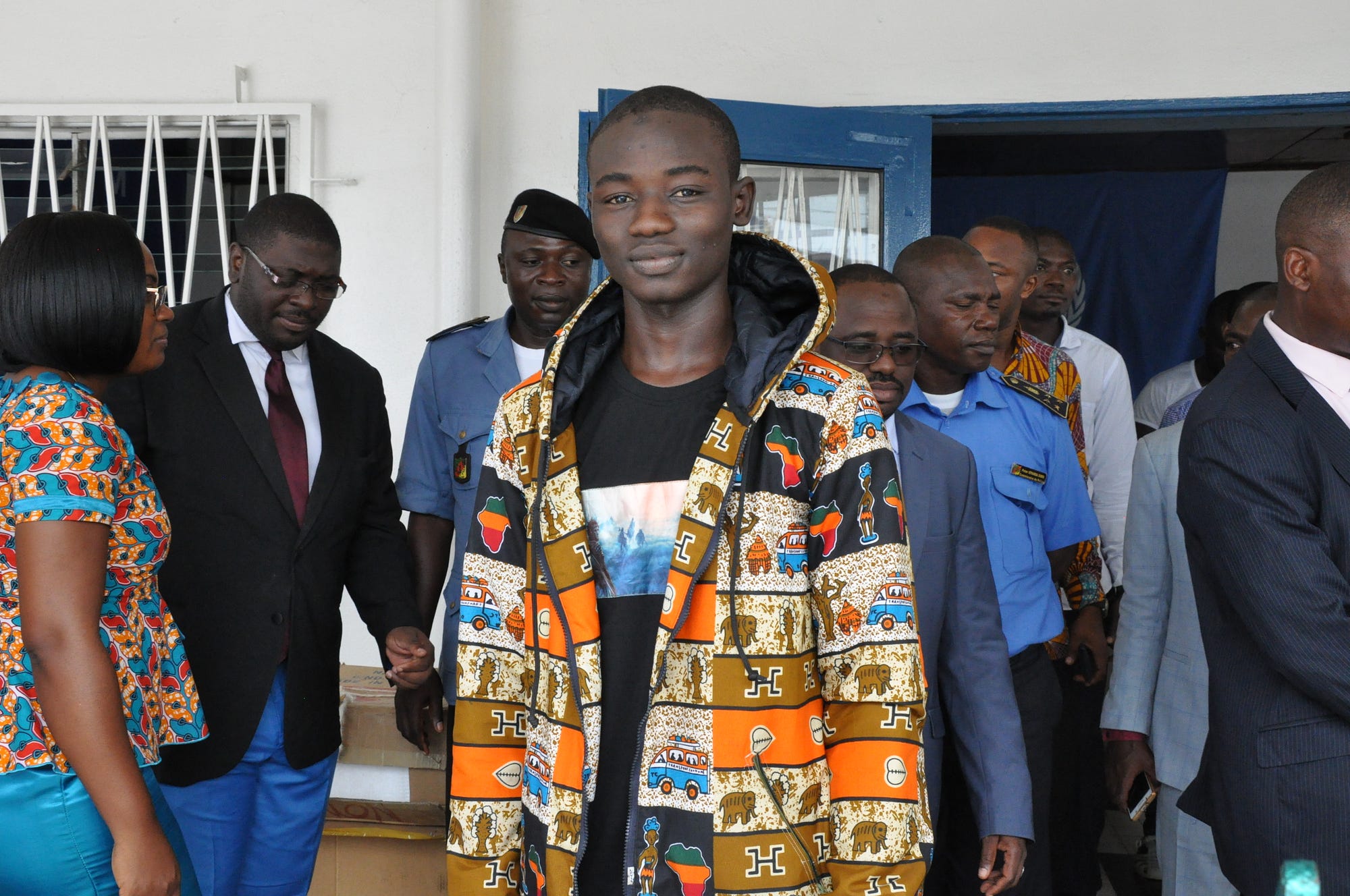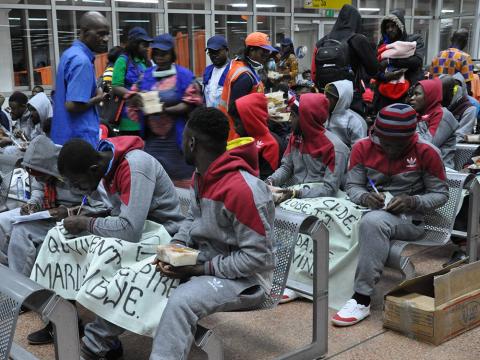Cameroonian Migrant Returnees
"I was fortunate to cheat death on several occasions, but other migrants didn't have such luck -- they died in the desert. In fact, I have been to hell and back."
"Before I left Nigeria to Niger, I was robbed of all my cash. Fortunately, I had paid the connection agents ['passeurs']. When we got to Niger, the smugglers who received us locked about 200 of us in a room in a bid to evade a state crackdown."
"We were tortured several times with electric wires and given very little food and water. Two people even died."
Jean Toukam, 30-year-old Cameroonian, Yaounde, Cameroon
"I stayed for six months without the promised job upon arrival."
"I did a crash training course in transport and logistics and got a job with a salary of 100,000 CFA francs [about C$230], less than half of what I used to earn back home."
"At this time, I was sleeping on a bare floor in an air-tight room with no furniture."
Malvina, Cameroonian returnee
"We have so far chartered ten flights -- five from Tripoli and five from Agadez -- to bring home migrants who voluntarily wanted to come back."
Seybou Boubacar, UN International Organization for Migration, Cameroon Chief of Mission

Malvina who wanted her last name withheld is back home in Cameroon. She has set up a small business of her own and it is thriving. "Home is really home", she stated. She had decided to leave Cameroon when she was invited to travel to Mali by a friend who told her of a well-paying job. When she left, she took her three-year-old son with her. Before long the company she worked for was forced to perform a financial restructuring and her job was eliminated. She would go on to Algeria, crossing the desert on foot, carrying her son on her back. She was found and repatriated to Mali. Then made her way back to Cameroon. Her migration was not one of desperation.
As for Toukam, he set out to cross the Mediterranean Sea to arrive in Europe with the expectation that his life would change for the better. He was trained as an agriculture and livestock technician. Leaving Yaounde, he passed through Nigeria and Niger to reach Sabratha a city on the Libyan coast where he fell victim to slavery. He is only one among thousands of young people from sub-Saharan Africa feverish to migrate to Europe though it means traversing dangerous routes and enduring harsh climatic conditions in the Sahara and facing the risks of the Mediterranean.
These "adventurers" use trafficking networks of clandestine operations. According to the U.S. Department of State, their 2018 report states: "the Government of Cameroon does not fully meet the minimum standards for the elimination of trafficking". When Toukam left Cameroon in 2015 he planned to meet up with a Libyan friend to find work on an agricultural project in Libya. He set out on a journey of over 3,000 miles to Libya, cash in hand. He ended up staying in a ghetto in Agadez, Niger for three months and spoke of his time there as "life-threatening".
Deciding to move on to Libya he and 25 migrants were packed into the back of a pickup truck and as they travelled through the Sahara Desert two of their company died of dehydration before the smuggler abandoned them all. Two weeks later he attempted again, and reached Libya where he was sold by his 'passeur', and locked up in an encampment by armed smugglers. Eventually his family sent back 800 euros to buy his freedom. Upon which he decided to cross to Italy; en route being abducted by armed smugglers when he incurred bullet wounds attempting to escape following four months of captivity.
The European Union arranged for him to be taken to a repatriation camp in Tripoli, Libya. Now back in Cameroon, Toukam has created a returnees' association whose purpose it is to alert young people in Cameroon of the risks inherent in irregular migration. The United Nations is giving aid to migrants along the central Mediterranean routes if they voluntarily return to their home countries. There is concern that young girls are being trafficked to Europe and Middle East countries like Kuwait and Lebanon as domestics or sex workers facing forced labour, torture and other forms of violence.
Through this program in the last year and a half 2,397 Cameroonian migrants have found assistance to return home. Each returnee is given money for incidental expenses and seed capital to help them start up a business. The International Organization for Migration covers the cost of those agreeing to return on commercial flights back to Cameroon.
 |
| 184 Cameroonian returnees have been supported by IOM to start their livelihood activities. Photo: IOM |
Labels: Africa, Danger, Europe, Migration, Returnees, Smuggling

<< Home